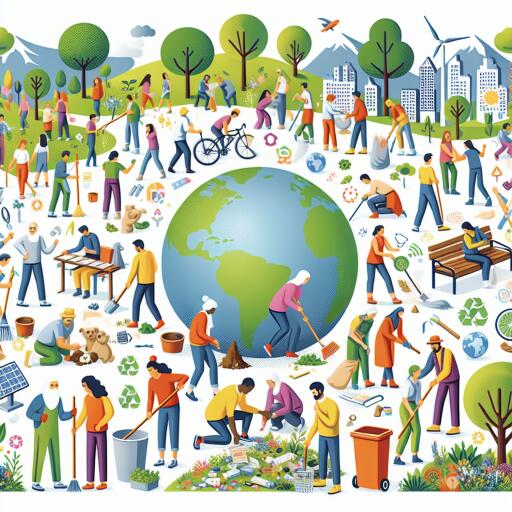
Conserving the Environment to Strengthen Community Resilience
In the face of escalating climate crises, the deteriorating condition of natural ecosystems is not just an environmental concern, but a critical factor in the resilience of communities worldwide. The situation in Uganda offers a poignant example of the broad implications of environmental degradation on both the natural world and human societies. Over the past several decades, Uganda has witnessed a dramatic transformation in its natural landscape, particularly concerning its wetlands.
Once covering 15.6% of the country’s surface area in 1994, Uganda’s wetland coverage has now dwindled to a mere 8.9%. This significant reduction reflects a broader trend of environmental decline that is by no means unique to Uganda but is emblematic of the challenges facing ecosystems globally.
Climate change is manifesting in increasingly severe shocks across different regions, testifying to the urgent need for action. Consider the devastating effects of landslides in areas such as Bududa and Bundibugyo, or the catastrophic floods in Kasese. Communities, particularly those living in vulnerable locations, face unprecedented challenges as they grapple with the aftermath of these natural disasters. The rising water levels of Lake Victoria, for instance, have not only wreaked havoc on the local environment but have also propelled communities into a state of vulnerability, with the looming threat of hunger ever-present.
The repercussions of these climate-induced calamities extend beyond immediate physical destruction. They exacerbate the vulnerabilities of already marginalized groups, including women, who bear the brunt of the crises. The erosion of natural barriers and the depletion of resources critical for sustenance and livelihood have underscored the intertwined fate of the environment and human well-being.
It is crucial to recognize that the degradation of vital ecosystems such as forests and wetlands contributes significantly to the escalation of climate change impacts. These natural resources play an indispensable role in stabilizing the climate, preserving biodiversity, and protecting the livelihoods of millions of people. Their decline not only accelerates environmental destruction but also diminishes the capacity of communities to withstand and recuperate from the adverse effects of climate change.
The lesson from Uganda’s environmental challenges is clear: conserving and restoring ecosystems is not merely an ecological imperative but a necessity for ensuring the resilience and sustainability of human communities. As climate change continues to pose an increasingly severe threat to global stability, the protection of the natural environment emerges as a fundamental strategy in building resilient societies capable of facing and overcoming the challenges of today and tomorrow.
In conclusion, enhancing the resilience of communities against climate change requires a concerted effort to preserve and regenerate the natural environment. By taking decisive action to conserve ecosystems, society can forge a stronger, more resilient future that benefits both people and the planet.





Leave a Reply